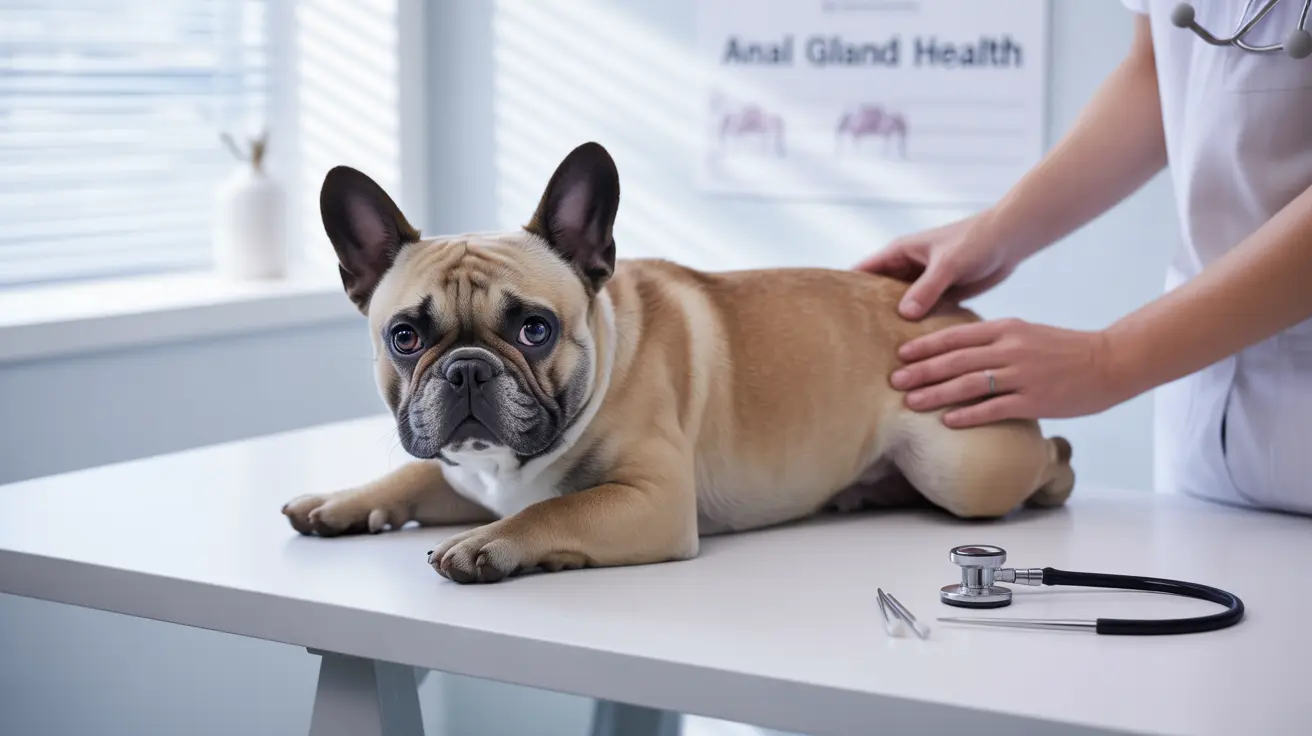As a French Bulldog owner, understanding your pet's anal gland health is crucial for their comfort and well-being. These small but significant glands can cause considerable discomfort when problems arise, and French Bulldogs are particularly susceptible to anal gland issues compared to many other breeds.
In this comprehensive guide, we'll explore everything you need to know about French Bulldog anal gland health, from understanding the basics to recognizing warning signs and implementing preventive measures. Whether you're a new Frenchie parent or an experienced owner, this information will help you keep your pet healthy and comfortable.
Understanding Anal Glands in French Bulldogs
Anal glands, also known as anal sacs, are two small pouches located on either side of your French Bulldog's anus. These glands produce a distinctive-smelling fluid that helps dogs mark their territory and communicate with other canines. In healthy dogs, these glands typically empty naturally during defecation.
However, French Bulldogs often experience difficulties with natural expression due to their unique anatomy and genetic predisposition. This makes them more susceptible to various anal gland problems that require careful monitoring and management.
Common Anal Gland Problems in French Bulldogs
Several issues can affect your French Bulldog's anal glands:
Impaction
The most common problem occurs when the glands don't empty properly, leading to uncomfortable buildup and potential infection. Signs include scooting and excessive licking of the area.
Infection and Inflammation
When impacted glands become infected, they can cause significant pain and discomfort. The area may become red, swollen, and tender to the touch.
Abscess Formation
In severe cases, infected glands can develop into abscesses, which require immediate veterinary attention to prevent serious complications.
Prevention and Management Strategies
Diet and Nutrition
A high-fiber diet is essential for maintaining healthy anal gland function. Consider adding fiber-rich supplements like pumpkin to your Frenchie's meals to promote firmer stools and natural gland expression.
Regular Exercise
Physical activity helps maintain proper muscle tone and promotes regular bowel movements, which aid in natural gland expression.
Professional Monitoring
Regular veterinary check-ups can help identify potential problems early, preventing more serious complications.
When to Seek Veterinary Care
Contact your veterinarian immediately if you notice:
- Excessive scooting or licking of the anal area
- Blood or pus near the anus
- Visible swelling around the anal area
- Strong, persistent fishy odor
- Signs of pain during defecation
Frequently Asked Questions
Why are French Bulldogs prone to anal gland problems?
French Bulldogs are predisposed to anal gland issues due to their anatomy, genetics, and body structure. Their compact build and potential for obesity can affect proper gland emptying, making them more susceptible to problems.
How do I recognize the signs of anal gland issues in my French Bulldog?
Watch for scooting, excessive licking of the anal area, difficulty defecating, strong fishy odor, and visible swelling or redness around the anus. These are all common indicators of anal gland problems.
What are the best ways to prevent anal gland problems in French Bulldogs?
Prevention involves maintaining a high-fiber diet, ensuring regular exercise, keeping your dog at a healthy weight, and scheduling regular veterinary check-ups. Early intervention is key to preventing serious complications.
Can I express my French Bulldog's anal glands at home, or should I go to a vet?
It's strongly recommended to have anal gland expression performed by a veterinary professional. Improper technique can cause injury or infection, and some dogs require internal expression that should only be done by trained professionals.
What are the treatment options for anal gland infections or abscesses in French Bulldogs?
Treatment options include professional expression, antibiotics for infections, warm compresses, and in severe or chronic cases, surgical removal of the glands. The specific treatment plan will depend on the severity and nature of the problem.
Conclusion
While anal gland issues are common in French Bulldogs, proper awareness and preventive care can help minimize problems and ensure your pet's comfort. Regular veterinary check-ups, appropriate diet, and prompt attention to warning signs are key to maintaining your Frenchie's anal gland health.






